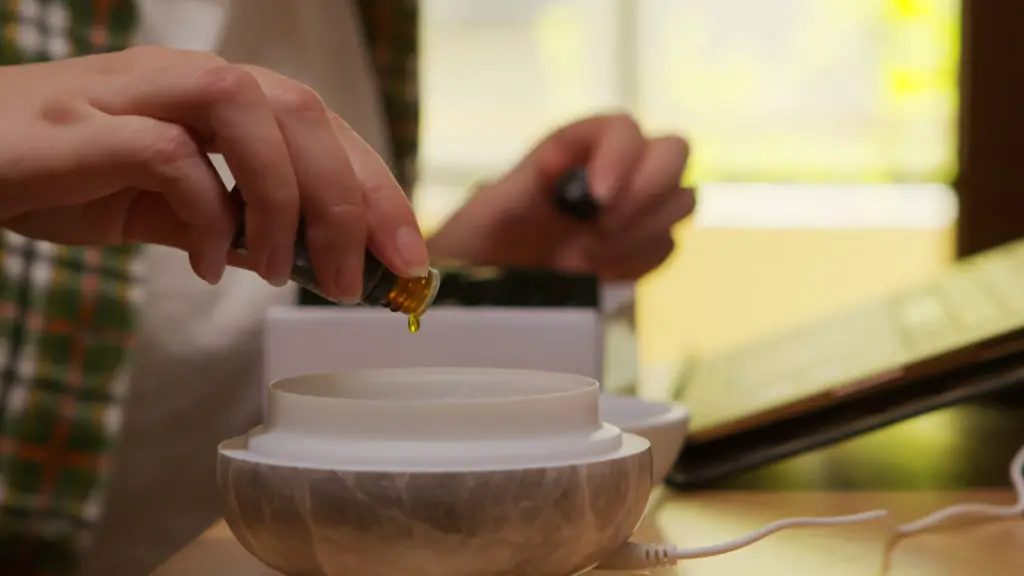Does heating essential oils ruin them if you boil or warm them in a fire?
Here are the quick facts:
- Some essential oils will be ruined by too much heat
- Excess heat may trigger a fire if the heat exceeds its flashpoint
If you like to heat your essential oil before using it, rest assured that you are not alone. There are millions of others like you who like to heat essential oils too.
But does heating essential oils ruin them? It depends on how the oil was made!
We’ll go over the impact of heat on essential oils below.
Does Temperature Affect Essential Oils?
The first thing we want to know is whether temperature affects diffused essential oils, and the answer is yes.
Typically not cold temperature and freezing, but hot temperature can impact essential oils.
If you use diffuse essential oils in a cold form, like lavender oil, you don’t risk nutrient loss. A rise in temperature does not harm the oil.
But if there is a drop in temperature beyond a certain degree, the efficacy of the essential oil will be affected.
If you use essential oil in a cold form like lavender oil, you don’t risk nutrient loss because a rise in temperature does not harm the oil.
But if you keep your essential oil on the fridge and it freezes, how then can you use it without heating it first?
The best course of action will be to give it time to defrost.
This may take up to an hour or more, but it is better than heating lavender essential oil (or any other essential oil for that matter). You may not know how much heat is too much. Some essential oil can take more heat than others.
Does Heating Essential Oils Ruin Them?
Exposing some essential oil to the heat of around 140 degrees for a short time will not ruin it. But over an extended period, the essential oil will be affected.
Many essential oils are extracted at a temperature of 240-260 degrees above boiling. So they can handle some heat! They just can’t withstand it for long.
Many essential oils are extracted at a temperature of 240-260 degrees above boiling. So they can handle some heat! They just can’t withstand it for long.
These essential oils include eucalyptus oil, lavender oil, tea tree oil, peppermint oil, and many other natural oils people use in their homes.
Now let’s look at the different forms of essential oils and how they respond to heat.
1. Distilled Oil
One form of essential oil is distilled oil, which is one of the most common extraction processes used by manufacturers.
Essential distilled oil can be heated and remain in good form as long as the container used in storing them is capped tightly to prevent air entry and content escape.
And they only require a few drops in a dispenser to work.
2. Cold Pressed Oil
Another form of essential oil is a cold-pressed oil sourced from nuts and seeds. Cold-pressed oils are mainly used to extract carrier oil like almond, olive, and coconut oil, to mention a few.
But there are essential oils extracted in this form, including Lemon, Lime, Grapefruit, and Bergamot. These have to be kept under moderate temperature and cannot withstand the heat of more than 100 degrees. Excess heat will cause the essential oils to evaporate.
But there are essential oils extracted in this form, including Lemon, Lime, Grapefruit, and Bergamot. These have to be kept under moderate temperature and cannot withstand the heat of more than 100 degrees.
The best way to preserve cold-pressed oil is at room temperature, and if you must boil essential oils never heat them, you should never heat them for long, but only a few seconds; otherwise, you will ruin their essence.
Heat or Steam Distillation
Another popular method is steam or heat distillation. Oils extracted using heat are isolated from the plant by vaporizing the plant’s main compounds so condensation can take place. Oils extracted via this process can handle the heat and not change the composition.
They are much better than highly toxic essential oils.
There are a few other methods, but these three are by far the most common.
Will I Ruin My Essential Oils If I Heat Them?
If you burn your essential oils, you will not ruin them unless the temperature exceeds the flashpoint rate. The flashpoint rate refers to the degree the temperature will attain before it becomes flammable.
But note that some essential oils don’t have to reach their Flashpoint rate before they lose their essence. This is why we recommend you consult the product information section to know whether you can burn essential oils you buy and to what degree at most.
- Flashpoints of some popular essential oils
- Bergamot: 58 degrees Celsius
- Chamomile: 57 degrees Celsius
- Cinnamon: 90 degrees Celsius
- Citronella: 57 degrees Celsius
- Clary Sage: 79 degrees Celsius
- Lavender: 71 degrees Celsius
- Myrrh: 93 degrees
- Clove Leaf: 95 degrees
How to Heat Essential Oils
There are different methods to heat essential oils, namely
- Boiling water
- Diffusing
- Heated bulbs/utensils
The idea is to expose the oil to maximum temperature so that the molecules are broken down and evaporate into the atmosphere. So does heating essential oils ruin them? It depends on the flashpoint of the essential oils and the extraction method.






